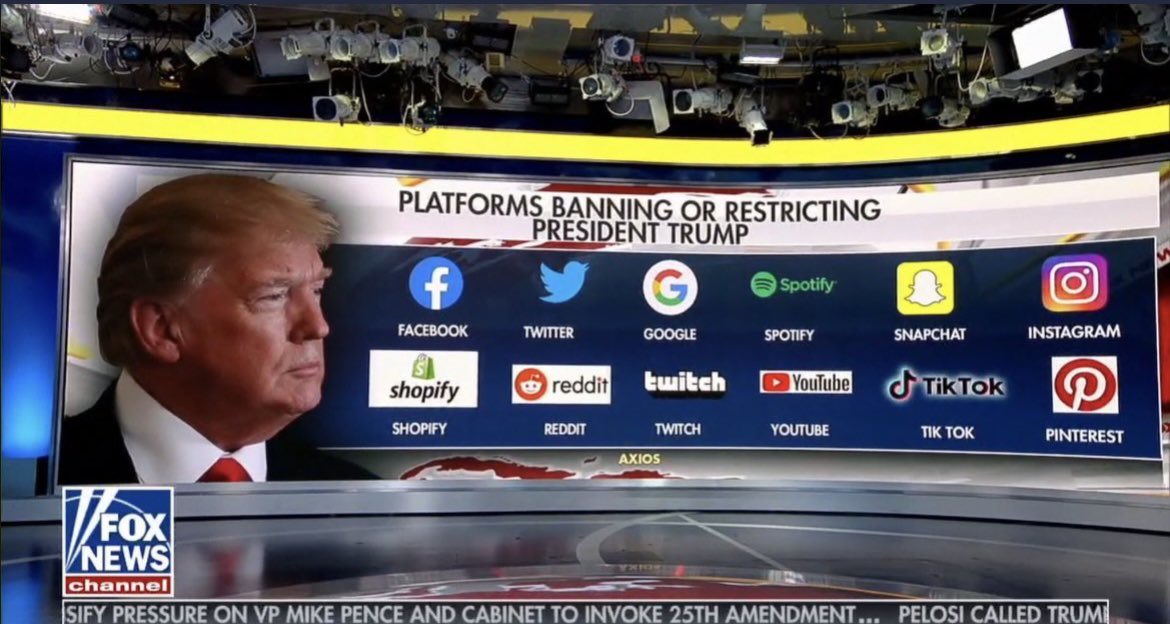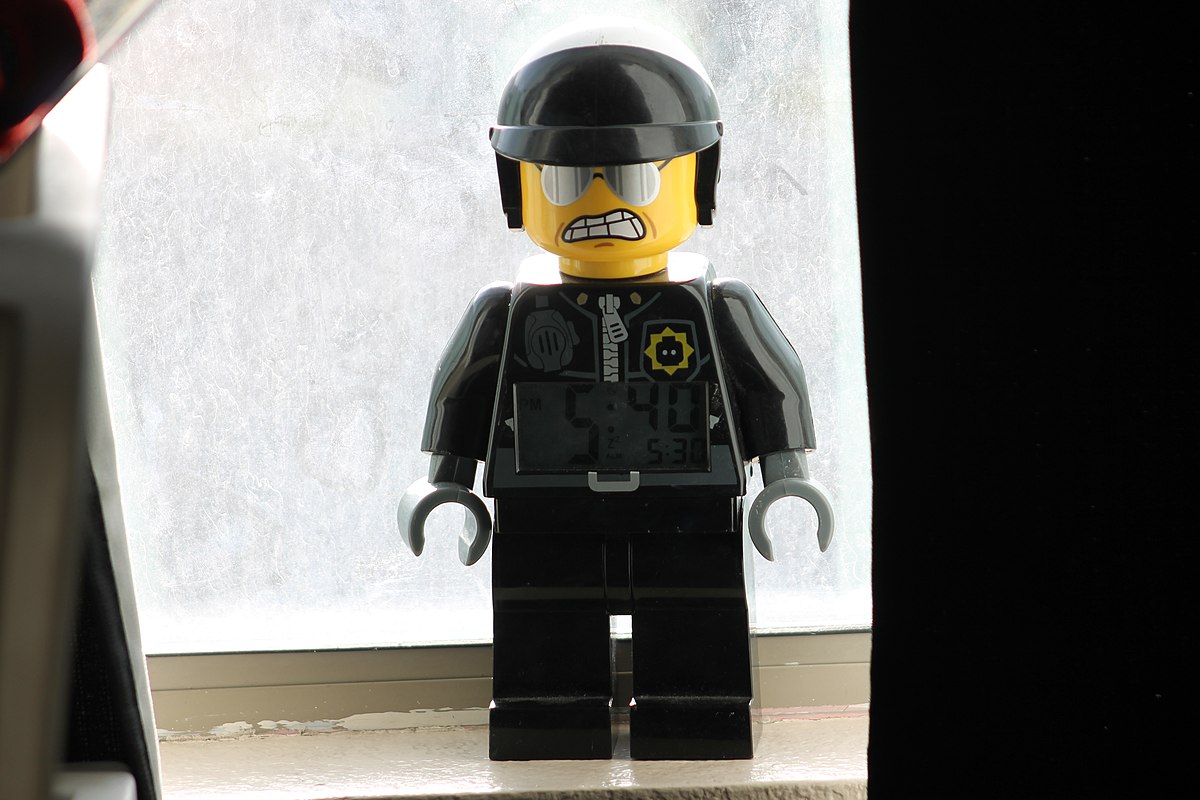
A timely post in today's @PublicDomainRev brings us the storied history of "The Revolutionary Colossus," a recurring image of "a king-eating colossus" that spread widely and in many forms during the French Revolution.
publicdomainreview.org/essay/revoluti…
1/
publicdomainreview.org/essay/revoluti…
1/
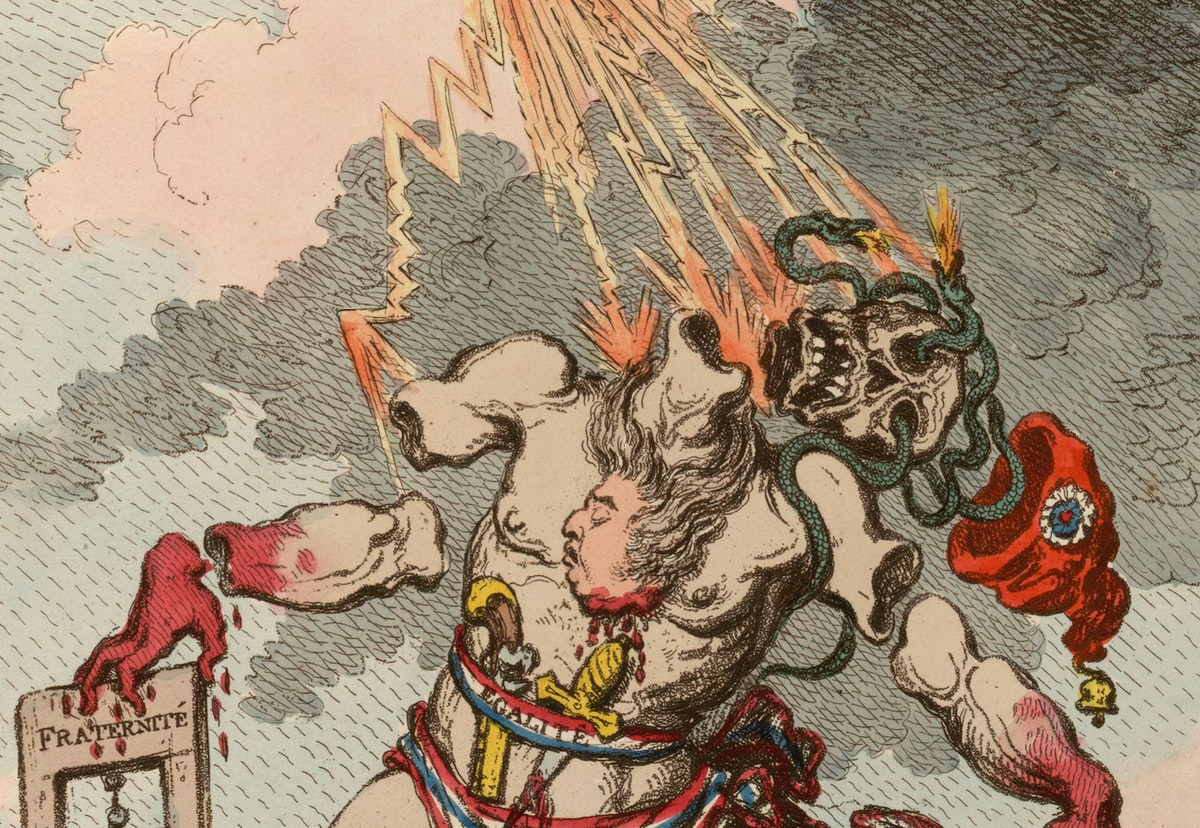
One classic depiction comes from Erasmus Darwin (Charles Darwin's grampa) in "The Economy of Vegetation" a poem in 1791's "The Botanic Garden."
2/
2/
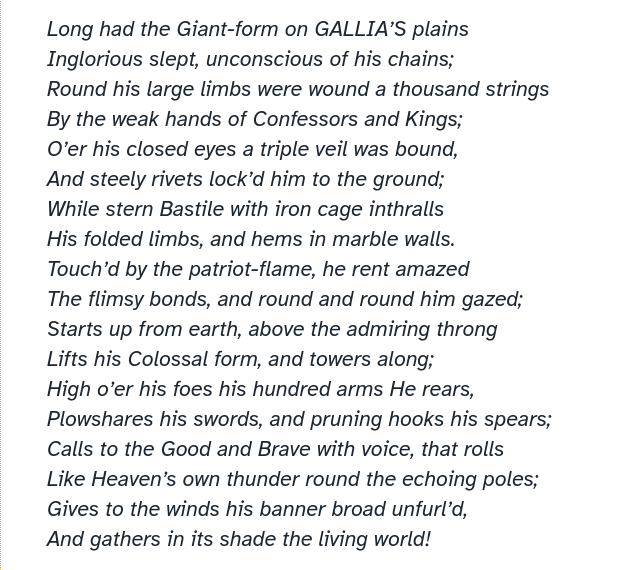
Or as @sswesner summarizes it for we poesie-impaired types: "Between thick dungeon walls, a giant lies asleep. He’s chained to the ground, large limbs folded, enmeshed in a web of ropes, a blindfold over his closed eyes."
3/
3/
"Suddenly, as if touched by a flame, he awakes, and gazes around in amazement. He starts up, shreds the ropes entangling him, breaks chains, smashes walls, and rises to his feet. Towering over the world, shadow stretching out below, he calls out with a voice like thunder."
4/
4/
While the poetic invocations of the colossus are quite stirring, they're not a patch on the imagery, like Villeneuve's 1790 engraving, "The French People Overwhelming the Hydra of Federalism."
parismuseescollections.paris.fr/fr/musee-carna…
5/
parismuseescollections.paris.fr/fr/musee-carna…
5/
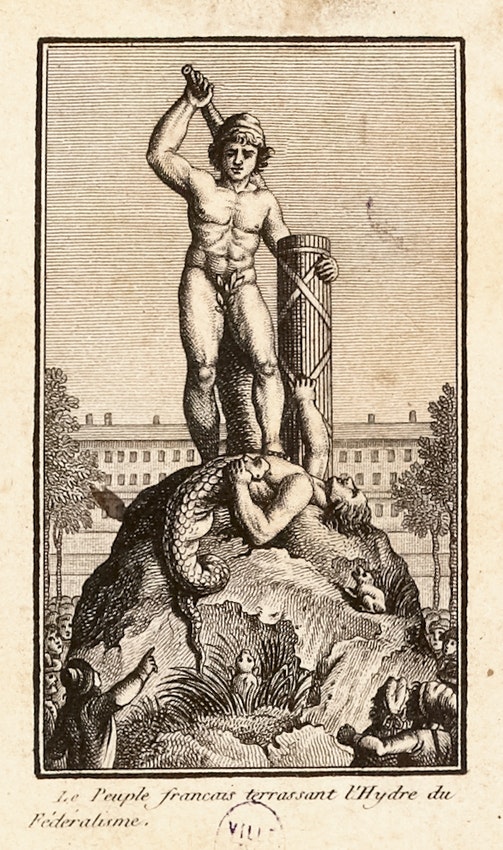
Or 1793's "The People, King-Eater," whose artist is lost to the mists of time:
gallica.bnf.fr/ark:/12148/btv…
6/
gallica.bnf.fr/ark:/12148/btv…
6/
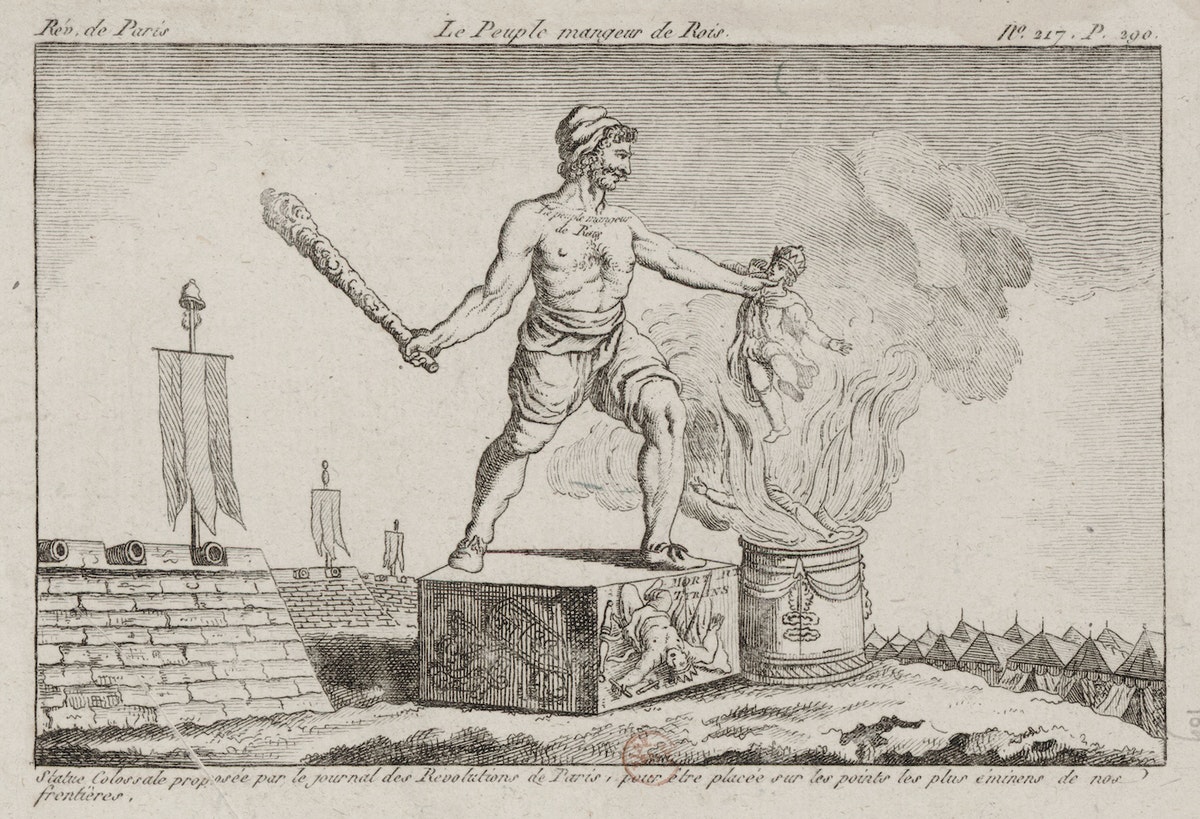
The Colossus is a lineal descendant of the image of Hobbes's Leviathan, a 1651 image that is so striking it is still widespread today.
commons.wikimedia.org/wiki/File:Levi…
7/
commons.wikimedia.org/wiki/File:Levi…
7/
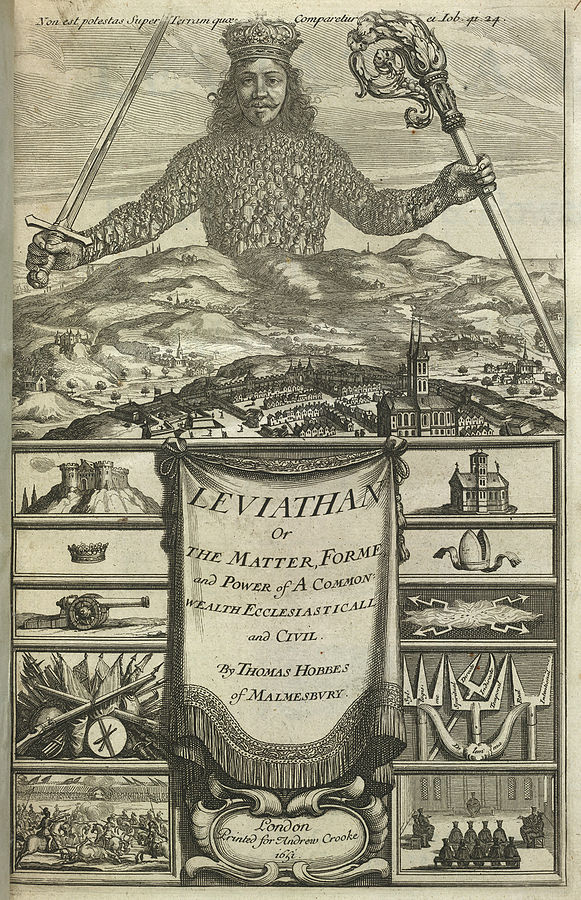
Visually, though, the most contemporary Colossus comes from British caricaturist James Gillray, whose 1794 lampoon of the French Revolution and the Terror is straight out of EC Comics (or vice-versa) (obviously).
gallica.bnf.fr/ark:/12148/btv…
8/
gallica.bnf.fr/ark:/12148/btv…
8/
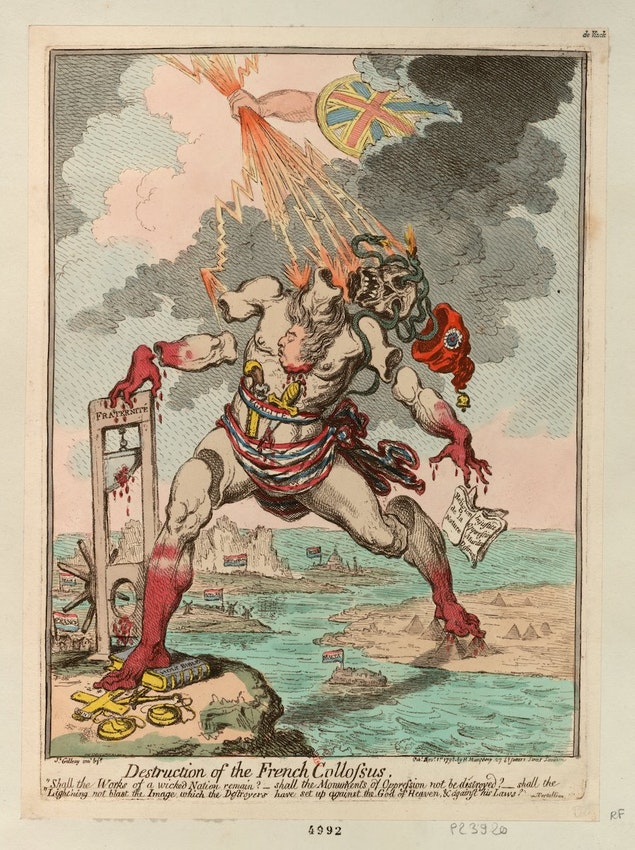
It wasn't just foreign enemies of the Republic who appropriated the Colossus for political ends: French reactionaries like Poirier de Dunckerque made king-eating into an act of monstrous cannibalism.
gallica.bnf.fr/ark:/12148/btv…
9/
gallica.bnf.fr/ark:/12148/btv…
9/
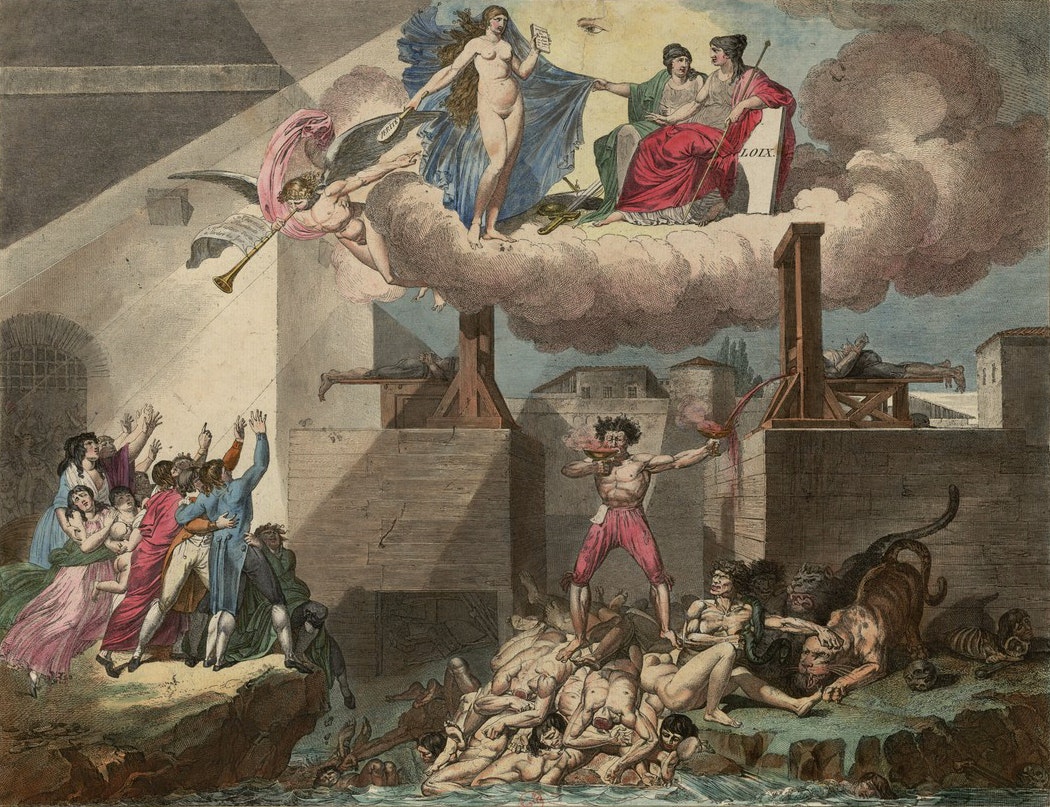
The image found its way into the public imagination as a depiction of the doubl-edged sword of revolutions, with a Colossus-descended Frankenstein's monster engraged on the frontispiece of Shelley's MODERN PROMETHEUS in 1831.
wellcomecollection.org/works/p67zzz4d…
10/
wellcomecollection.org/works/p67zzz4d…
10/
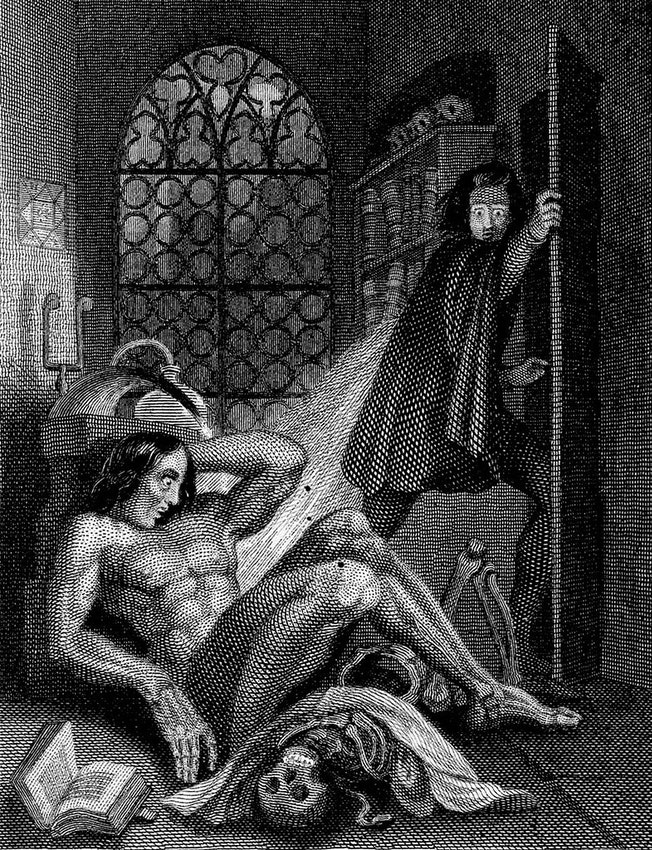
Wesner: "Placing the revolutionary Colossi in a genealogy that stretches from Darwin’s Bastille giant through to Frankenstein’s horrific creature invites us to consider the particular emotional register within which each appears."
11/
11/
"If for Darwin, revolution could be allegorized to the electrified awakening of an embodied Third Estate, then Frankenstein allegorizes a revolution stripped of both its epic scale and its promise."
12/
12/
"Our attention shifts from the patriot-flame and the Colossus to the 'modern Prometheus' of Shelley’s subtitle, who gave fire to mankind and lived to regret it."
eof/
eof/
ETA: Here's a surveillance-free, tracker-free blogpost version of this thread:
pluralistic.net/2021/01/07/rev…
pluralistic.net/2021/01/07/rev…
• • •
Missing some Tweet in this thread? You can try to
force a refresh

